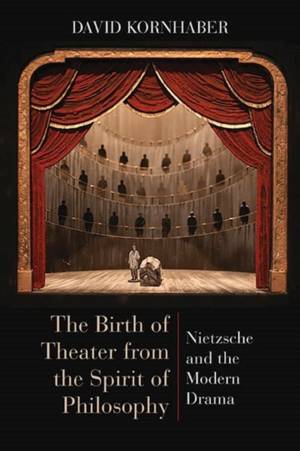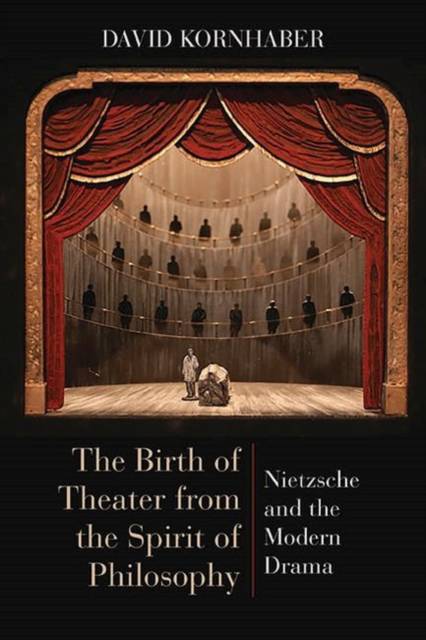
- Afhalen na 1 uur in een winkel met voorraad
- Gratis thuislevering in België vanaf € 30
- Ruim aanbod met 7 miljoen producten
- Afhalen na 1 uur in een winkel met voorraad
- Gratis thuislevering in België vanaf € 30
- Ruim aanbod met 7 miljoen producten
Zoeken
The Birth of Theater from the Spirit of Philosophy
Nietzsche and the Modern Drama
David Kornhaber
Paperback | Engels
€ 53,45
+ 106 punten
Uitvoering
Omschrijving
Nietzsche's love affair with the theater was among the most profound and prolonged intellectual engagements of his life, but his transformational role in the history of the modern stage has yet to be explored. In this pathbreaking account, David Kornhaber vividly shows how Nietzsche reimagined the theatrical event as a site of philosophical invention that is at once ancestor, antagonist, and handmaiden to the discipline of philosophy itself. August Strindberg, George Bernard Shaw, and Eugene O'Neill-- seminal figures in the modern drama's evolution and avowed Nietzscheans all--came away from their encounters with Nietzsche's writings with an impassioned belief in the philosophical potential of the live theatrical event, coupled with a reestimation of the dramatist's power to shape that event in collaboration with the actor. In these playwrights' reactions to and adaptations of Nietzsche's radical rethinking of the stage lay the beginnings of a new direction in modern theater and dramatic literature.
Specificaties
Betrokkenen
- Auteur(s):
- Uitgeverij:
Inhoud
- Aantal bladzijden:
- 256
- Taal:
- Engels
Eigenschappen
- Productcode (EAN):
- 9780810132603
- Verschijningsdatum:
- 31/05/2016
- Uitvoering:
- Paperback
- Formaat:
- Trade paperback (VS)
- Afmetingen:
- 150 mm x 226 mm
- Gewicht:
- 340 g

Alleen bij Standaard Boekhandel
+ 106 punten op je klantenkaart van Standaard Boekhandel
Beoordelingen
We publiceren alleen reviews die voldoen aan de voorwaarden voor reviews. Bekijk onze voorwaarden voor reviews.











